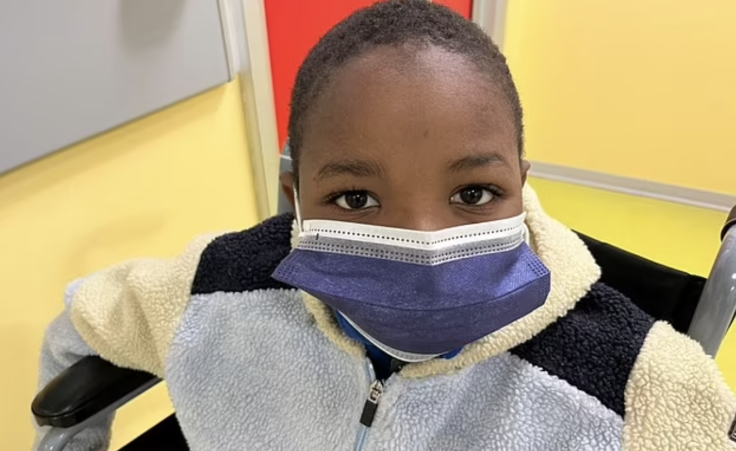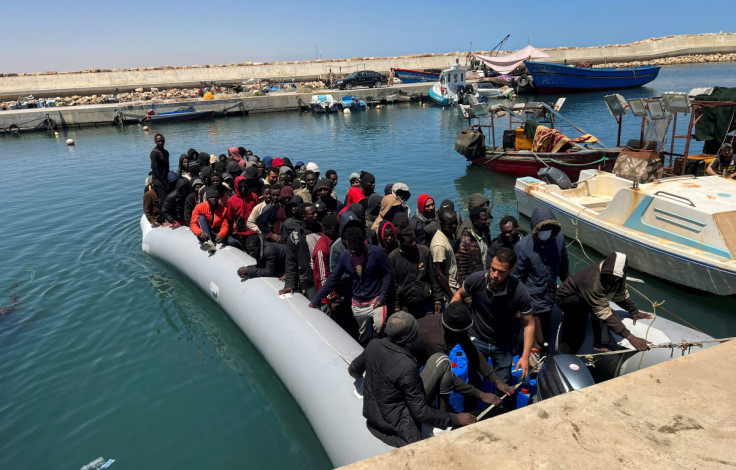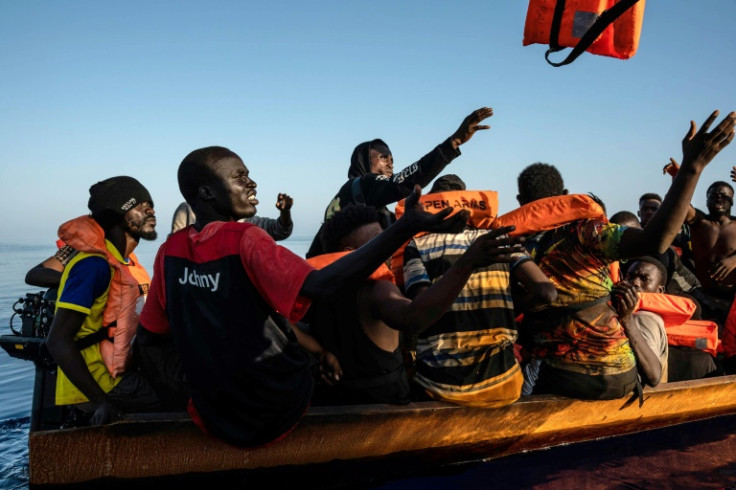
After deciding to flee his small village in the west of Mali, Africa, an eight-year-old boy made a 3,500-mile journey to Italy.
Oumar said that he left his home near Tambaga following a jihadist attack four months ago.
The young boy was separated from his family when he ran from the terrorist group on foot.
Having made a successful trek to Europe, Oumar said that he had walked through the Sahara Desert and endured some time in prison before finally crossing the Mediterranean Sea in a dinghy.
On his journey, he joined different groups of weary travellers and eventually ended up in Libya.
Using concerned travellers as his disguise, Oumar travelled out of the country and into Libya. But, almost immediately after he had arrived in Libya, the eight-year-old said that he was kidnapped by gang members and forced to work as a painter and a welder.
Eventually, after several days, Oumar escaped from his captors and made way for the Mediterranean Sea in an attempt to sail to Europe. But once again, the eight-year-old was captured when the Libyan coast guard seized the dinghy that was carrying Oumar and his fellow passengers.
The second capture was followed by arrests, which resulted in the eight-year-old being thrown into the notoriously brutal Ain Zara jail in Tripoli.
Taking pity on the young boy, two adults smuggled Oumar out of prison in a bin. Eventually, they returned him back to the coast at Zawiya, located on the edge of Tripoli, to board a second dinghy.
In Zawiya, the eight-year-old was able to join another dinghy, where he met another young boy – also named Oumar. According to the Oumar, the slightly older Oumar had recognised him from Ain Zara jail and took care of him like a big brother for the rest of the passage.

Onboard the second dingy were 23 other children and more than 60 adults, each on their own desperately dangerous sea voyage to Europe.
Oumar said that he spent days adrift in the Mediterranean Sea, where the two Oumars feared that they would be found by another Coast Guard boat and shipped back to Libya.
After the two boys spotted what they thought was a Coast Guard boat, they were quickly reassured when the NGO lifeboat Ocean Viking came into view.
Having just responded to a catastrophic situation that saw some 60 to 100 people die on a different migrant vessel from Libya, Ocean Viking quickly rescued the passengers aboard Oumars dinghy.
Italian Journalist Angela Nocioni, who was on board the Ocean Viking lifeboat at the same time as Oumar, told The Telegraph: "He is an incredible child. When he told me his story, I did everything I could to confirm all the details."
"Every survivor on the dinghy told me, 'It's true, he is all alone.'"
The older Oumar also confirmed that the younger Oumar had made his trip completely alone since Ain Zara prison in Libya.
Almost immediately after the lifeboat picked him up, the eight-year-old warmed to Nocioni and refused to leave her side.
The Ocean Viking staff were also quick to notice that the 3,500-mile journey had left Oumar suffering from dehydration, hunger and hypothermia.
Several more miles later, the Ocean Viking finally arrived at the seaport of Ancona, located on the north-eastern Italian coast of the Adriatic Sea; the two Oumars were seen holding hands as they walked off the boat and parted ways.
The eight-year-old was then introduced to a mediator from Mali who had been waiting at the local leisure centre, which is used for processing migrants.

Alessandro Fucili, the director of the Ancona migrant centre, said that Oumar was adamant that both of his parents were still in Mali.
Following the treacherous journey, the youngster was given Fucili's phone to call his father, whose number he had memorised, to inform his family of his whereabouts.
After telling his father that he had arrived safely in Europe, the eight-year-old was heard asking his father: "Can I go to school, Papa?"
Oumar was later taken to undergo medical checks. Doctors reported that the eight-year-old had arrived with scars and needed a cast for a broken bone in his heel.
The doctors also said that it was obvious that his body had been through a lot.
Fucili went on to call Oumar "very intelligent" and "very brave".
In regard to Oumar's desire for an education, the Ancona migrant centre director went on to explain that the centre was trying to find a place for him in a local school, together with other migrant children.







